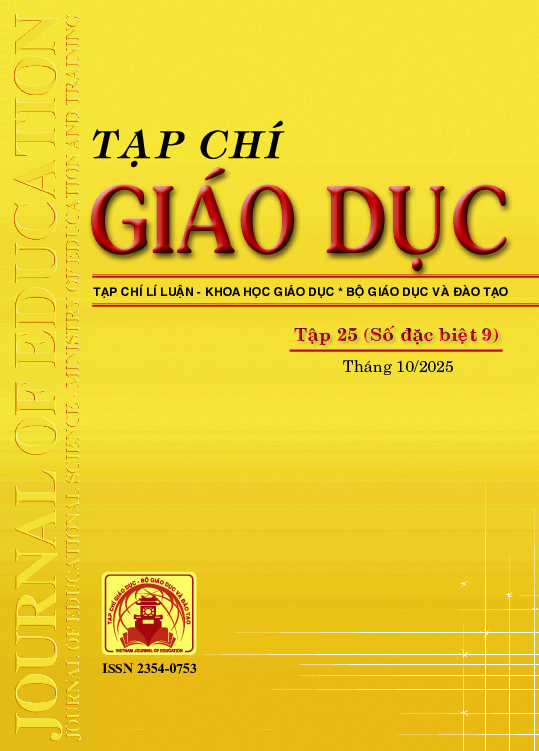Hành vi sử dụng TikTok của học sinh thế hệ Gen Z tại thành phố Hà Nội
Tóm tắt
TikTok is an integral part of the lives of Gen Z students in Hanoi, playing an important role in entertainment and social connection. However, prolonged use of TikTok leads to negative behaviours such as self-deprecation, excessive bragging, and participation in risky trends, influenced by social comparison pressure and dependence on virtual values. This study explores TikTok usage behaviours of Gen Z students (15-18 years old) in Hanoi, focusing on usage time, purpose, user type, and negative manifestations such as social anxiety, low self-esteem, and risk of cyberbullying. Using survey and in-depth interview methods, the study found that TikTok is an important part of students’ daily lives, with dominant behaviours including passive content consumption, content creation, and participation in risky trends. The study proposes practical solutions for students, schools, parents, and the TikTok platform to promote healthy use, minimize risks, and support the positive development of Gen Z in Hanoi.
Tài liệu tham khảo
DataReportal (2024). Digital 2024: Việt Nam. https://datareportal.com/reports/digital-2024-vietnam
Erikson, E. H. (1968). Identity: Youth and crisis. W. W. Norton & Company.
Festinger, L. (1954). A theory of social comparison processes. Human Relations, 7(2), 117-140. https://doi.org/10.1177/001872675400700202
Genoveva, G. (2021). TikTok platform opportunity: How does it influence SMEs brand awareness among Generation Z? Sriwijaya International Journal of Dynamic Economics and Business, 5(3), 273-282. https://doi.org/10.29259/sijdeb.v5i3.273-282
Liu, J. (2021). The influence of the body image presented through TikTok trend-videos and its possible reasons. Advances in Social Science, Education and Humanities Research, 559, 359-363. https://doi.org/10.2991/assehr.k.210609.072
Maslow, A. H. (1954). Motivation and personality. Harper & Row.
Montag, C., Yang, H., Elhai, J. D. (2021). On the psychology of TikTok use: A first glimpse from empirical findings. Frontiers in Public Health, 9, 641673.
Nguyễn Thị Hồng Hạnh, Vương Khánh Linh, Đoàn Hồng Nhung, Vũ Thị Hồng Thắm, Đào Thị Quỳnh Như (2025). Hiện tượng Quiet Quitting: góc nhìn giáo dục và định hướng nghề nghiệp cho sinh viên và lao động trẻ “thế hệ Z” tại Việt Nam. Tạp chí Giáo dục, 25(10), 24-29.
Phan Lan Chi, Nguyễn Quang Anh, Ma Anh Tú, Bùi Thị Thu Huyền (2022). Ảnh hưởng của mạng xã hội TikTok đến thế hệ Z. Tạp chí Khoa học, Trường Đại học Sư phạm Hà Nội, 67(3), 186-195. https://doi.org/10.18173/2354-1067.2022-0052
Rogers, C. R. (1966). Client-centered therapy. American handbook of psychiatry, 3, 183-200. Basic Books.
TikTok Việt Nam (2023). Báo cáo thực thi nguyên tắc cộng đồng. https://www.tiktok.com/transparency/vivn/community-guidelines-enforcement-2023-4/
Tower, S. (2020). TikTok surpasses 2 billion downloads worldwide. https://sensortower.com/blog/tiktok-downloads2-billion
Đã Xuất bản
Cách trích dẫn
Số
Chuyên mục
Giấy phép

Tác phẩm này được cấp phép theo Ghi nhận tác giả của Creative Commons Giấy phép quốc tế 4.0 .












